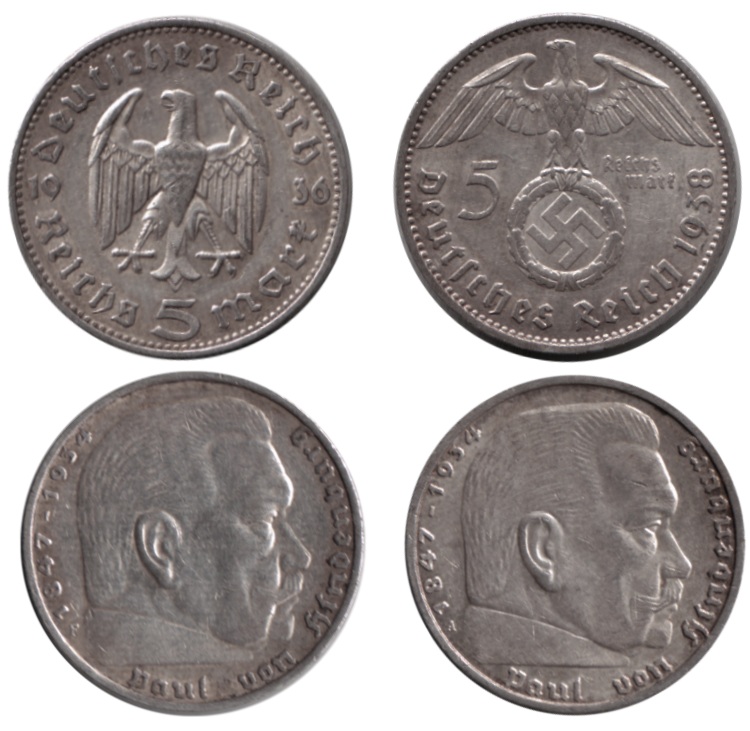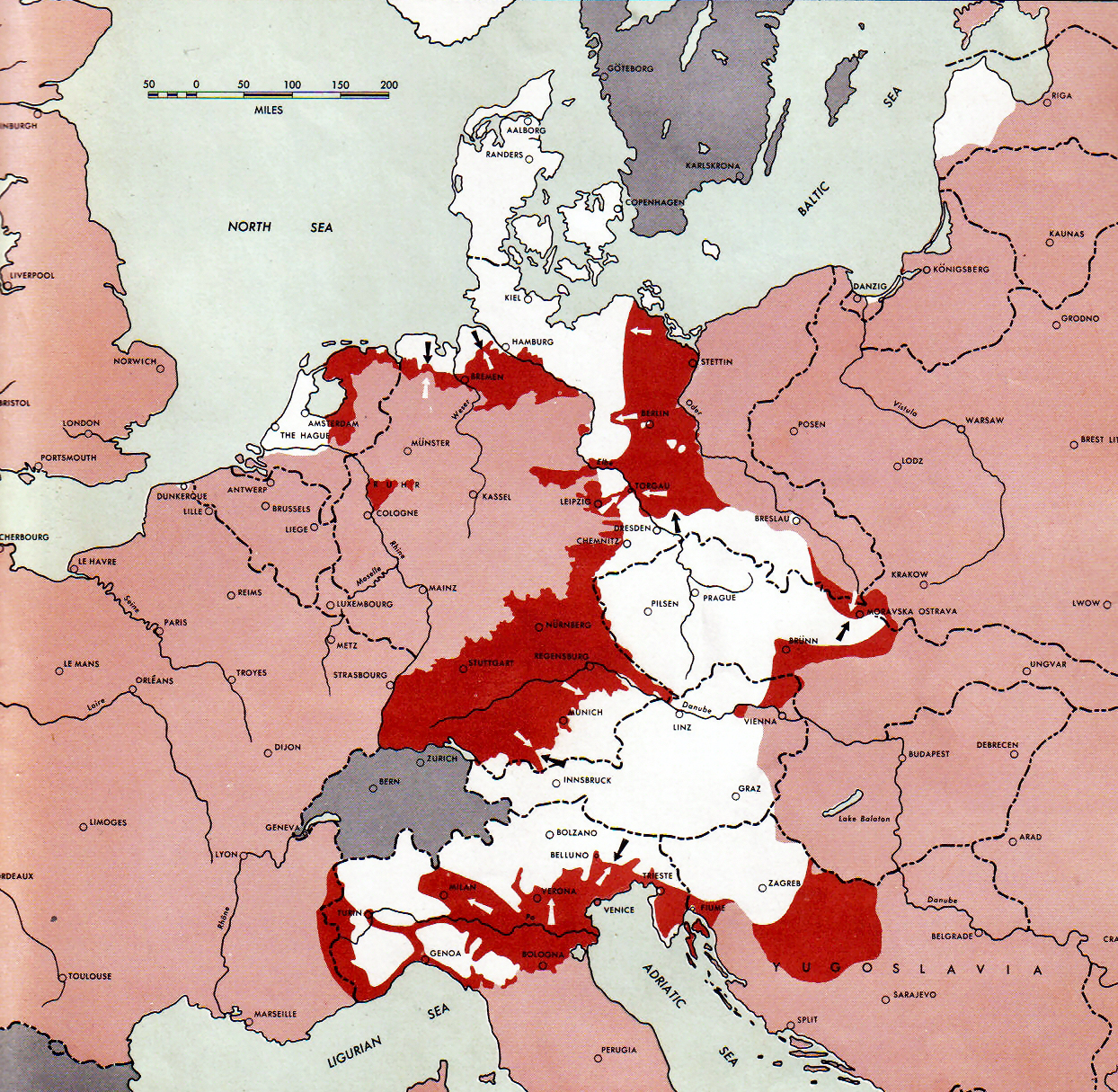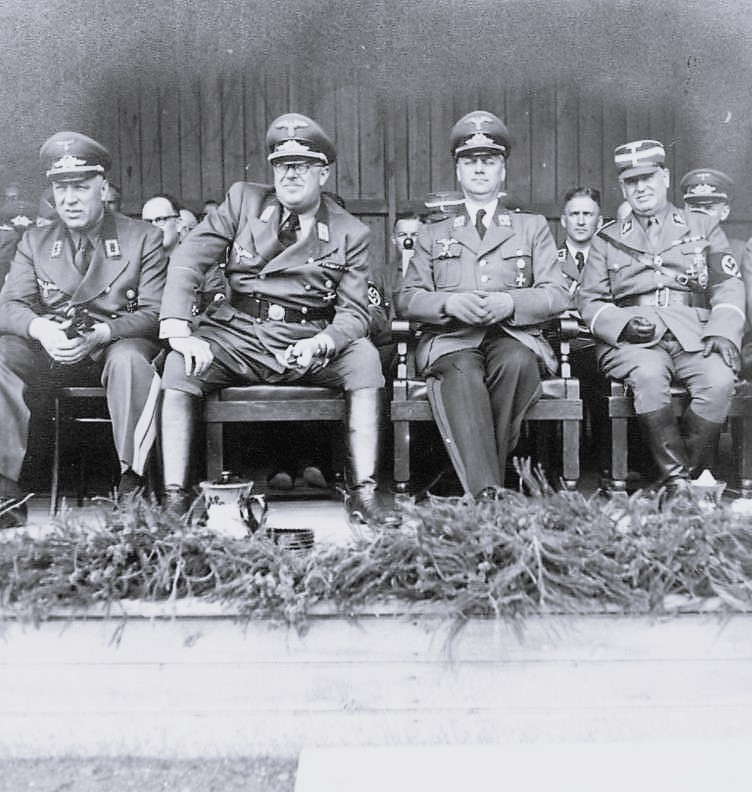|
Reichskommissariat Ostland
The Reichskommissariat Ostland (RKO) was established by Nazi Germany in 1941 during World War II. It became the civilian occupation regime in Estonia, Latvia, Lithuania, and the western part of Byelorussian SSR. German planning documents initially referred to an equivalent ''Reichskommissariat Baltenland''. The political organization for this territory – after an initial period of military administration before its establishment – involved a German civilian administration, nominally under the authority of the Reich Ministry for the Occupied Eastern Territories led by Nazi ideologist Alfred Rosenberg, but actually controlled by the Nazi official Hinrich Lohse, its appointed ''Reichskommissar''. Germany's main political objectives for the ''Reichskommissariat'', as laid out by the Ministry within the framework of Nazism's policies for the east established by Adolf Hitler, included the genocide of the Jewish population, as well as the ''Lebensraum'' settlement of ethnic Germa ... [...More Info...] [...Related Items...] OR: [Wikipedia] [Google] [Baidu] |
Reichskommissariat
''Reichskommissariat'' ( en, Imperial Commissariat) is a German word for a type of administrative entity headed by a government official known as a ''Reichskommissar'' ( en, Imperial Commissioner). Although many offices existed, primarily throughout the Imperial German and Nazi periods, in a number of fields (ranging from public infrastructure and spatial planning to ethnic cleansing) it is most commonly used to refer to the quasi-colonial administrative territorial entity established by Nazi Germany in several occupied countries during World War II. While officially located outside the German Reich in a legal sense, these entities were directly controlled by their supreme civil authorities (the ''Reichskommissars''), who ruled their territories as German governors on behalf of and as representatives of Adolf Hitler. The introduction of these territorial administrations served a number of purposes. Those established or planned to be established in Western and Northern Europe ... [...More Info...] [...Related Items...] OR: [Wikipedia] [Google] [Baidu] |
Irreligion
Irreligion or nonreligion is the absence or rejection of religion, or indifference to it. Irreligion takes many forms, ranging from the casual and unaware to full-fledged philosophies such as atheism and agnosticism, secular humanism and antitheism. Social scientists tend to define irreligion as a purely naturalist worldview that excludes a belief in anything supernatural. The broadest and loosest definition, serving as an upper limit, is the lack of religious identification, though many non-identifiers express metaphysical and even religious beliefs. The narrowest and strictest is subscribing to positive atheism. According to the Pew Research Center's 2012 global study of 230 countries and territories, 16% of the world's population does not identify with any religion. The population of the religiously unaffiliated, sometimes referred to as "nones", has grown significantly in recent years. Measurement of irreligiosity requires great cultural sensitivity, especially outsi ... [...More Info...] [...Related Items...] OR: [Wikipedia] [Google] [Baidu] |
De Facto
''De facto'' ( ; , "in fact") describes practices that exist in reality, whether or not they are officially recognized by laws or other formal norms. It is commonly used to refer to what happens in practice, in contrast with ''de jure'' ("by law"), which refers to things that happen according to official law, regardless of whether the practice exists in reality. History In jurisprudence, it mainly means "practiced, but not necessarily defined by law" or "practiced or is valid, but not officially established". Basically, this expression is opposed to the concept of "de jure" (which means "as defined by law") when it comes to law, management or technology (such as standards) in the case of creation, development or application of "without" or "against" instructions, but in accordance with "with practice". When legal situations are discussed, "de jure" means "expressed by law", while "de facto" means action or what is practiced. Similar expressions: "essentially", "unofficial", "in ... [...More Info...] [...Related Items...] OR: [Wikipedia] [Google] [Baidu] |
Reichsmark
The (; sign: ℛℳ; abbreviation: RM) was the currency of Germany from 1924 until 20 June 1948 in West Germany, where it was replaced with the , and until 23 June 1948 in East Germany, where it was replaced by the East German mark. The Reichsmark was subdivided into 100 s (Rpf or ℛ₰). The Mark is an ancient Germanic weight measure, traditionally a half pound, later used for several coins; whereas (''realm'' in English), comes from the official name for the German state from 1871 to 1945, . History The Reichsmark was introduced in 1924 as a permanent replacement for the Papiermark. This was necessary due to the 1920s German inflation which had reached its peak in 1923. The exchange rate between the old Papiermark and the Reichsmark was = 1012 ℳ (one trillion in American English and French, one billion in German and other European languages and British English of the time; see long and short scale). To stabilize the economy and to smooth the transition, the Papierm ... [...More Info...] [...Related Items...] OR: [Wikipedia] [Google] [Baidu] |
Courland Pocket
The Courland Pocket (Blockade of the Courland army group), (german: Kurland-Kessel)/german: Kurland-Brückenkopf (Courland Bridgehead), lv, Kurzemes katls (Courland Cauldron) or ''Kurzemes cietoksnis'' (Courland Fortress)., group=lower-alpha was an area of the Courland Peninsula where Army Group North of Nazi Germany and the Reichskommissariat Ostland were cut off and surrounded by the Red Army for almost a year, lasting from July 1944 until 10 May 1945. The pocket was created during the Red Army's Baltic Offensive, when forces of the 1st Baltic Front reached the Baltic Sea near Memel (Klaipėda) during its lesser Memel Offensive Operation phases. This action isolated the German Army Group North from the rest of the German forces, having been pushed from the south by the Red Army, standing in a front between Tukums and Libau in Latvia, with the Baltic Sea in the West, the Irbe Strait in the North and the Gulf of Riga in the East behind the Germans. Renamed Army Group Courl ... [...More Info...] [...Related Items...] OR: [Wikipedia] [Google] [Baidu] |
Generalbezirk Weissruthenien (Ruthenia Or Belarus)
Generalbezirk Weissruthenien (General District White Ruthenia) was one of the four administrative subdivisions of ''Reichskommissariat Ostland'', the 1941-1945 civilian occupation regime established by Nazi Germany for the administration of the three Baltic countries (Estonia, Latvia and Lithuania) and the western part of the Byelorussian SSR. Organization and Structure ''Generalbezirk Weissruthenien'' was formally organized on 1 September 1941 on the territory of German-occupied Byelorussia, (including West Belarus, previously Wilno and Nowogródek regions of the eastern territories of Poland annexed by the Soviet Union) which had until then been under the military administration of the ''Wehrmacht's'' Army Group Centre. The capital of ''Generalbezirk Weissruthenien'' was Minsk. On 1 April 1944, ''Generalbezirk Weißruthenien'' was detached from ''Reichskommissariat Ostland'' and was subordinated directly to the Reich Ministry for the Occupied Eastern Territories. Adminis ... [...More Info...] [...Related Items...] OR: [Wikipedia] [Google] [Baidu] |
Generalbezirk Estland (Estonia)
Generalbezirk Estland (General District Estonia) was one of the four administrative subdivisions of ''Reichskommissariat Ostland'', the 1941-1945 civilian occupation regime established by Nazi Germany for the administration of the three Baltic countries (Estonia, Latvia and Lithuania) and the western part of the Byelorussian SSR. Organization and Structure ''Generalbezirk Estland'' was the last of the four districts to be formally established on 5 December 1941. It was organized on the territory of German-occupied Estonia, which had until then been under the military administration of the ''Wehrmacht's'' Army Group North. The capital of ''Generalbezirk Estland'' was Tallinn (Reval). Administrative divisions ''Generalbezirk Estland'' had the following seven subdivisions called ''Kreisgebiete'' (County Areas). The seat of administration is in parentheses. *Arensburg (Kuressaare) *Dorpat (Tartu) *Narwa (Rakvere) *Pernau (Pärnu) *Petschur (Pechory) *Reval-Stadt (Tallinn) *Reval- ... [...More Info...] [...Related Items...] OR: [Wikipedia] [Google] [Baidu] |
Implement Civil Administration
Implement may refer to: * Implements (Java), an abstract type used to specify an interface in Java programming language * Implementation, the process for putting a design, plan or policy into effect * Tool, any physical item that can be used to achieve a goal **Farm implement, machinery used in agriculture ** Kitchen implement, utensils used in preparing or eating food **Writing implement, a tool used to produce writing See also * ''Implements of Hell ''Implements of Hell'' is the seventh studio album by the Belgian aggrotech act Suicide Commando. The title is a reference to the name given by serial killer Albert Fish to the tools used to torture and kill his victims. The track "Severed Head" ...'', an album by the Belgian aggrotech act Suicide Commando * Implementer (other) {{disambiguation ... [...More Info...] [...Related Items...] OR: [Wikipedia] [Google] [Baidu] |
World War II
World War II or the Second World War, often abbreviated as WWII or WW2, was a world war that lasted from 1939 to 1945. It involved the vast majority of the world's countries—including all of the great powers—forming two opposing military alliances: the Allies and the Axis powers. World War II was a total war that directly involved more than 100 million personnel from more than 30 countries. The major participants in the war threw their entire economic, industrial, and scientific capabilities behind the war effort, blurring the distinction between civilian and military resources. Aircraft played a major role in the conflict, enabling the strategic bombing of population centres and deploying the only two nuclear weapons ever used in war. World War II was by far the deadliest conflict in human history; it resulted in 70 to 85 million fatalities, mostly among civilians. Tens of millions died due to genocides (including the Holocaust), starvation, ma ... [...More Info...] [...Related Items...] OR: [Wikipedia] [Google] [Baidu] |
Erich Koch
Erich Koch (19 June 1896 – 12 November 1986) was a ''Gauleiter'' of the Nazi Party (NSDAP) in East Prussia from 1 October 1928 until 1945. Between 1941 and 1945 he was Chief of Civil Administration (''Chef der Zivilverwaltung'') of Bezirk Bialystok. During this period, he was also the ''Reichskommissar'' in ''Reichskommissariat Ukraine'' from September 1941 until August 1944 and in Reichskommissariat Ostland from September 1944. After the Second World War, Koch stood trial in Poland and was convicted in 1959 of war crimes and sentenced to death. The sentence was later commuted to life in prison and Koch died of natural causes in his cell at the Barczewo prison on 12 November 1986. Early life and First World War Koch was born in Elberfeld, today part of Wuppertal, as the son of foreman Gustav Adolf Koch (1862 – 1932) and his wife Henriette, née Matthes (1863 – 1939). In World War I he served without distinction as a soldier from 1915 to the end of the war in ... [...More Info...] [...Related Items...] OR: [Wikipedia] [Google] [Baidu] |
Hinrich Lohse
Hinrich Lohse (2 September 1896 – 25 February 1964) was a Nazi German politician and a convicted war criminal, best known for his rule of the Reichskommissariat Ostland, during World War II. Reichskommissariat Ostland now comprises Lithuania, Latvia, Estonia, and parts of modern day Belarus. Early life Hinrich Lohse was born into a peasant family in the town of Mühlenbarbek in the Province of Schleswig-Holstein. From 1903 to 1912 he attended the ''Volksschule'' in his home town, and afterwards the higher trade school. In 1913 he worked as an employee at the Blohm & Voss shipyard in Hamburg. During the First World War of 1914-1918 he served in the Imperial German Army from 23 September 1915 until his discharge with war wounds on 30 October 1916. Nazi Party career From 1919, Lohse was first an associate at the Schleswig-Holstein Farmers' Association, and then as of 1920, general secretary of the Schleswig-Holsteinische Bauern- und Landarbeiterdemokratie. In 1923, he joined t ... [...More Info...] [...Related Items...] OR: [Wikipedia] [Google] [Baidu] |






